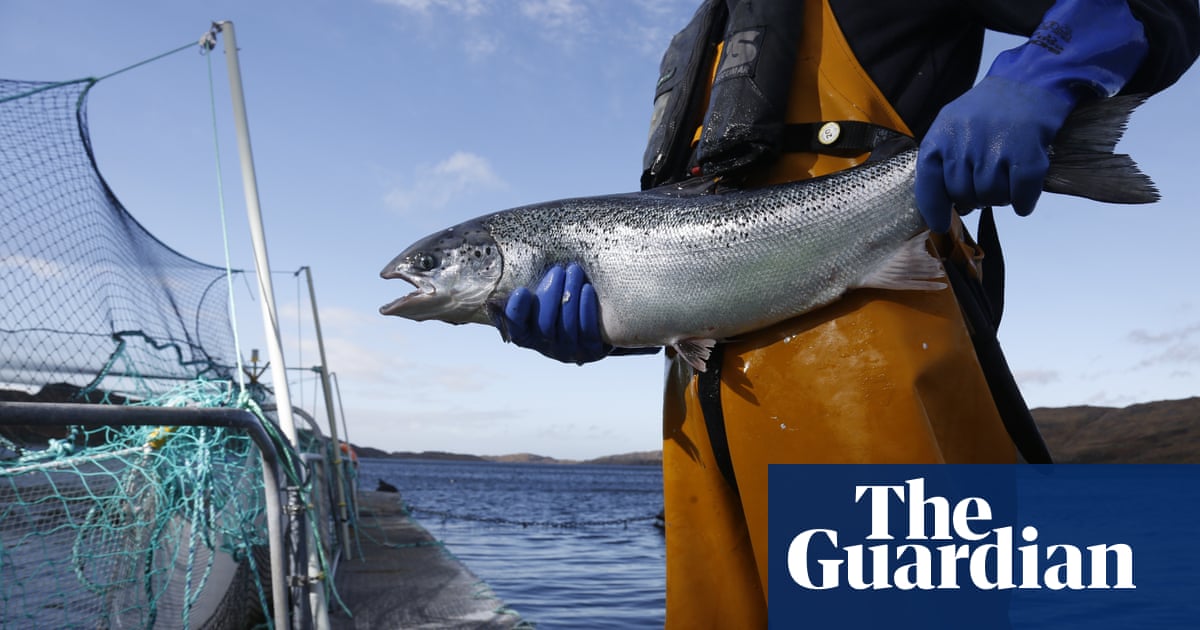Photo credit: www.theguardian.com
Change in Labeling of Scottish Salmon Sparks Controversy
Producers of Scottish salmon are able to remove the term “farmed” from their product packaging after a ruling from government lawyers deemed it unnecessary and potentially derogatory. This decision follows an amendment by the government last year that altered the protected geographical indication (PGI) from “Scottish farmed salmon” to “Scottish salmon” after lobbying efforts from industry representatives.
Understanding Protected Geographical Indication (PGI)
PGI labels are designed to inform consumers about the authenticity of food products associated with specific geographic regions, with examples including Cornish pasties and Stornoway black pudding.
Consumer Concerns and Appeal
However, this change has not come without opposition. Campaign groups such as Animal Equality UK and Wildfish expressed concerns, claiming that consumers could be misled about the actual origin and production conditions of the salmon. Their appeal highlighted the importance of transparency regarding the fish’s farming status.
Government Response
The Department for Environment, Food and Rural Affairs (Defra) maintained that the phrase “Scottish salmon” clearly identifies the geographic source—Scotland—ensuring consumers are not misled. Moreover, at a recent tribunal hearing, government representatives argued that there was no necessity for the PGI to include language deemed to be pejorative.
Industry Justification and Tribunal Ruling
The trade group Salmon Scotland supported the government’s decision, asserting that consumers are already aware that Atlantic salmon sold in the UK originates from farms rather than wild sources. Judge O’Connor dismissed the campaigners’ appeal, affirming that the updated label would not confuse consumers regarding the species or origin of the fish.
Production Context
The PGI designation covers salmon from various regions, including the mainland coast of Scotland and its islands. Despite the changes to labeling, regulations require that the fact the salmon is farmed will still be indicated on the back of the packaging.
Market Impact
The Scottish farmed salmon industry yields around 200,000 tonnes annually, contributing over £1 billion to the economy. It stands as the UK’s leading food export, reaching more than 50 countries and generating approximately £600 million in sales each year.
Environmental Concerns
Environmental activists have raised alarms about the prevalence of diseases in farmed fish, arguing that interactions with wild salmon populations can lead to detrimental breeding results. The sector has faced challenges recently, including record mortality rates among farmed salmon, with approximately 17.4 million salmon reported dead in 2023 alone due to a variety of environmental factors.
Industry Perspectives
Abigail Penny, executive director of Animal Equality UK, expressed concern about deteriorating consumer trust in the Scottish salmon industry, citing recent welfare abuses and disease outbreaks. She emphasized the need for increased transparency rather than a reduction in consumer information, especially amid rising misinformation.
In contrast, Tavish Scott, the chief executive of Salmon Scotland, defended the industry’s reputation, noting Scottish salmon’s status as the UK’s premier food export. He criticized the campaign groups for their attempts to challenge the government’s decision, suggesting that their actions were both legally unfounded and financially burdensome for taxpayers.
The controversy surrounding the labeling of Scottish salmon reflects broader discussions on food production practices, consumer rights, and environmental impacts, illustrating the complex dynamics at play in the UK’s food industry.
Defra has yet to issue a comment following the recent tribunal ruling.
Source
www.theguardian.com

